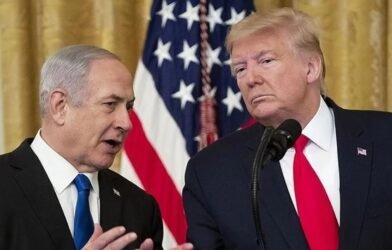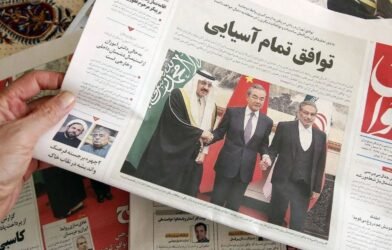Subtotal $0.00
Saudi-Pakistani relations have recently witnessed some improvement, as Saudi Arabia stopped its pressure on Pakistan to repay a loan of three billion US dollars, which Pakistan had borrowed from Saudi Arabia to support its financial system in 2018. This was accompanied by an improvement in the declared positions of the two sides; most notably, Pakistan announced in a statement by the Ministry of Foreign Affairs that it stands by Saudi Arabia in the face of US pressure on the Saudi Crown Prince on the issue of the slain Saudi journalist Jamal Khashoggi.
This was accompanied by talk of Saudi Arabia's desire to resume investing $20 billion in an oil refinery and petrochemical plant in Pakistan's Gwadar port on the Arabian Sea, which is the final point of the Pakistan-China Economic Corridor (CPEC), one of the most important projects of China's Belt and Road Initiative (BRI).
This improvement in the relationship between the two sides prompted observers to try to understand the change that took place, until the two countries overcame the acute and unusual crisis between them, the most prominent of which was the Pakistani parliament's refusal in 2015 to participate in Saudi Arabia's war on Yemen, and Saudi Arabia's receiving Indian Prime Minister Narendra Modi twice between 2016 and 2019 and giving him promises to establish projects worth one hundred billion dollars in his country.
In August 2019, India announced the annexation of Kashmir, which Pakistan considers its national cause. Saudi Arabia also refused to invite the Council of Foreign Ministers of the Organization of Islamic Cooperation (OIC) to meet to discuss the matter, which was seen by the Pakistani people as an Arab failure led by Saudi Arabia and the UAE, which prompted Foreign Minister Shah Mahmood Qureshi to make critical statements about Saudi Arabia.
This is uncommon in the relationship between the two countries, but it reflects how emotional the Pakistani government felt about the Saudi positions
This is uncommon in the relationship between the two countries, but it reflects the extent of the emotion felt by the Pakistani government towards Saudi positions. This was evident when Pakistani Prime Minister Imran Khan participated in the Organization of Islamic Cooperation summit in Mecca in July 2019, and directed his speech to the interpreter and turned away from King Salman bin Abdulaziz in front of the cameras, then quickly left without hearing the response, which the Saudis considered an unacceptable insult.
Then there was Pakistan's announcement to participate in the Kuala Lumpur Summit on December 19, 2019, called by Malaysian Prime Minister Mahathir Mohamad, with the participation of Turkey, Qatar, Iran, and Indonesia. This angered the Saudis very much, as they considered the conference an attempt to create an alternative axis to the Organization of Islamic Cooperation, which they lead, and to pull the rug out from under their feet, so they put pressure on Pakistan by threatening to withdraw Saudi deposits from Pakistan's central bank and terminate the services of millions of Pakistanis working in the Gulf. Despite Pakistan's withdrawal from the summit and Pakistan's army chief Qamar Javed Bajwa's quick visit to Saudi Arabia, he did not succeed - apparently - in repairing the rift between the two parties, as the visit was followed by Saudi insistence that Pakistan repay the loan it borrowed in 2018 amid the suffocating Corona crisis, which has already happened with the help of China.
What pushed the relationship to improve after such a rapid deterioration? It can be argued that Saudi Arabia read the arrival of US President Joe Biden to power as a milestone in the future of the region
So what prompted the relationship to improve after such a rapid deterioration? It can be said that Saudi Arabia read the arrival of US President Joe Biden to power as a milestone in the future of the region. Saudi Arabia realized from the first moment that Biden has a new policy different from his predecessor Trump, as he lifted the protection of the Saudi crown prince that Trump provided for him, announced his rejection of the Yemen war, announced his desire to return to the nuclear deal with Iran, Saudi Arabia's adversary and stubborn rival, then confirmed his planned withdrawal from Afghanistan, which indicates a decline in US interest in the region, especially as its need for Gulf oil declines.
All of this made Saudi Arabia think about looking for an alternative global power to provide it with a security umbrella to rely on when needed, and so it tried to rapidly develop its relationship with China, which was evident during the visit of Chinese Foreign Minister Wang Yi last month to the region. This was evident during Chinese Foreign Minister Wang Yi's visit to the region last month. Today, China is Saudi Arabia's largest trading partner, a key partner in Prince Mohammed bin Salman's Vision 2030, and the party that has been working with Saudi Arabia since 2018 on the construction of a nuclear plant that Saudi Arabia wants to use to adjust the imbalance of power in favor of Iran. Perhaps the best gateway to better relations with Beijing is the old Pakistani partner, which is China's best and most important strategic partner, and which also has the huge military power that Saudi Arabia has always found by its side when needed.
Today, Saudi Arabia is trying to play a balancing game between the United States and China, at least until things become clear and the situation results in a shift in the international balance of power that leads to a greater role for China in the region, or America strengthens its grip once again. Therefore, although it is trying to get closer to China and Pakistan, it wants a privileged relationship with Tel Aviv, the closest US ally, and is trying to push Pakistan to normalize relations with Israel, so that Saudi Arabia will be the last normalizer in the Muslim world, thus mitigating reactions against it on this sensitive issue. The relationship with Tel Aviv also guarantees it a stubborn partner in the enmity with Tehran with whom it can cooperate to weaken it, and at the same time a guarantee, through its deep influence on US policy, that the US position towards Saudi Arabia, however bad, will remain within what is tolerable.
It is trying to play a balancing game between the United States and China, at least until things become clear and the situation results in a shift in the international balance of power that leads to a greater role for China in the region, or America strengthens its grip once again. Therefore, although it is trying to get closer to China and Pakistan, it wants a privileged relationship with Tel Aviv
This was accompanied by attempts by the UAE and Saudi Arabia today to repair the relationship between arch-rivals India and Pakistan, which resulted in the exchange of letters between the prime ministers of the two countries and the announcement of the start of import and export operations - albeit on a limited basis - between them, in the hope that this would keep them at a distance from Iran and ensure that they do not join Iran if US sanctions are lifted.
On the other hand, if Saudi Arabia decides to go towards a reconciliation with Iran, China, with its huge interests with Iran amounting to hundreds of billions of dollars, wants to maintain stability in the region and prevent any war or armed confrontation that could hinder the Belt and Road Initiative (BRI) projects. These interests could make China put pressure on Iran to prevent it from undertaking any aggressive projects that could affect Saudi influence in the region. At the same time, it could be the bridge that Riyadh crosses to a historic reconciliation with Tehran, which is what China is trying to market today as it has good relations with all countries in the region and is the best mediator to solve its issues and overcome its crises, including historical ones.
Pakistan, for its part, is working to improve relations with Saudi Arabia for reasons related to Islamic legitimacy, which traditionally relies on the idea of protecting the country of the Two Holy Mosques and the Gulf economic support that the country cannot do without, but at the same time it is working to strengthen its relationship with other Islamic countries, especially Turkey, because it knows that this kind of imbalanced partnership with Saudi Arabia does not serve its interests as the most powerful Islamic country in the long run.












